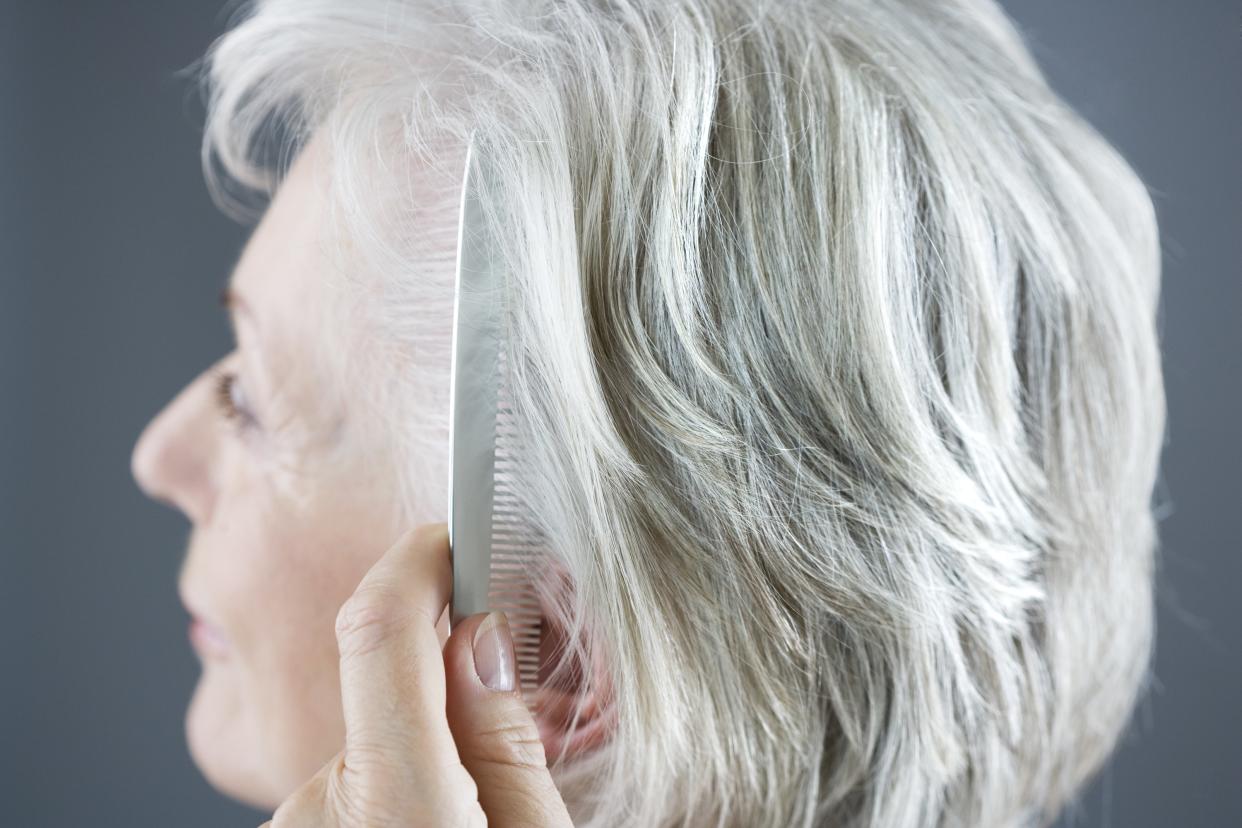Hair Loss May Be Linked to Air Pollution, According to New Research

We all know that air pollution can be detrimental to our health in a myriad of ways, perhaps most notably to our respiratory systems. According to new research, however, the negative effects of air pollution may also extend to our scalp (which, when you think about it, makes perfect sense). Scientists found that exposure to common air pollutants (called particulate matter, or PM for short) could be linked to hair loss.
To study this, researchers exposed cells from hair follicles to different levels of dust and diesel PM for 24 hours. Afterward, they measured different protein levels in the cells and found that both pollutants decreased the level of a specific protein that is responsible for hair growth (that specific protein, for those curious, is called β-catenin). In other words, they found that air pollution zaps the protein that fuels hair growth from your follicles, which leads to hair loss.
"The research found that when the cells on the human scalp were exposed to common air pollutants created from burning fossil fuels, the proteins in the cells that are responsible for hair growth and hair retention were significantly reduced," study leader Hyuk Chul Kwon tells Allure. Chul Kwon, who presented the findings at the 28th European Academy of Dermatology and Venereology Congress in Madrid last week, says, "The more pollutants that the cells were exposed to, the bigger this impact seemed to be."
What exactly is particulate matter (PM), and what does this research mean for those of us who live in large cities? First off, PM is "made up of small solid particles and droplets in the air that we breathe," explains certified trichologist Michelle Blaisure. PM is all of the gunk in the air that constitutes what we consider to be air pollution, otherwise known as "that haze you see in the atmosphere on bad air quality days," Blaisure says.
In Blaisure's opinion, these study findings aren't surprising — but that's not to say that they aren't concerning. "We know that the health of your scalp skin is important in healthy hair growth and pollution can be detrimental to your skin," Blaisure says. "If the skin is compromised, the hair follicle can be affected as the follicle is an appendage of the skin."
Board-certified dermatologist Adarsh Vijay Mudgil agrees, saying that "although the study's findings are interesting, it's important to remember that this is a laboratory study." Why? Because, as Mudgil points out, "in the actual human body, there are a lot more variables at play."
For starters, one of those variables is that "the skin is a barrier designed to protect from outside invaders," Blaisure explains. Second of all, this is where your hair-care routine comes into play; Just like you (hopefully) wouldn't go to sleep without cleansing the day’s grime off of your skin, the same should apply to your scalp — which is also skin. "It is important to shampoo and use exfoliating products on a regular basis to keep your hair and scalp healthy and free of toxins and pollutants," Blaisure advises.
Lastly, it's also important to remember that the "research was undertaken in a laboratory," Chul Kwon points out, wherein pollutants were directly exposed to the cells from hair follicles for a period of 24 hours. Therefore, "further research needs to be undertaken to understand just how quickly this affects people regularly exposed to pollutants in their day-to-day lives," Chul Kwon says.
Still, the bottom line here is that this research provides new insight into the many ways in which air pollution can harm our health.
More on hair loss:
Now, watch Lele Pons try nine things she's never done before:
You can follow Allure on Instagram and Twitter, or subscribe to our newsletter to stay up to date on all things beauty.
Originally Appeared on Allure

